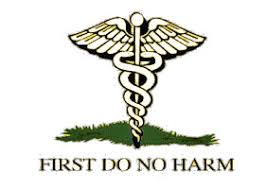Charles Pillar
Science Magazine
Originally posted 21 JUL 22
Here is an excerpt:
A 6-month investigation by Science provided strong support for Schrag’s suspicions and raised questions about Lesné’s research. A leading independent image analyst and several top Alzheimer’s researchers—including George Perry of the University of Texas, San Antonio, and John Forsayeth of the University of California, San Francisco (UCSF)—reviewed most of Schrag’s findings at Science’s request. They concurred with his overall conclusions, which cast doubt on hundreds of images, including more than 70 in Lesné’s papers. Some look like “shockingly blatant” examples of image tampering, says Donna Wilcock, an Alzheimer’s expert at the University of Kentucky.
The authors “appeared to have composed figures by piecing together parts of photos from different experiments,” says Elisabeth Bik, a molecular biologist and well-known forensic image consultant. “The obtained experimental results might not have been the desired results, and that data might have been changed to … better fit a hypothesis.”
Early this year, Schrag raised his doubts with NIH and journals including Nature; two, including Nature last week, have published expressions of concern about papers by Lesné. Schrag’s work, done independently of Vanderbilt and its medical center, implies millions of federal dollars may have been misspent on the research—and much more on related efforts. Some Alzheimer’s experts now suspect Lesné’s studies have misdirected Alzheimer’s research for 16 years.
“The immediate, obvious damage is wasted NIH funding and wasted thinking in the field because people are using these results as a starting point for their own experiments,” says Stanford University neuroscientist Thomas Südhof, a Nobel laureate and expert on Alzheimer’s and related conditions.
Lesné did not respond to requests for comment. A UMN spokesperson says the university is reviewing complaints about his work.
To Schrag, the two disputed threads of Aβ research raise far-reaching questions about scientific integrity in the struggle to understand and cure Alzheimer’s. Some adherents of the amyloid hypothesis are too uncritical of work that seems to support it, he says. “Even if misconduct is rare, false ideas inserted into key nodes in our body of scientific knowledge can warp our understanding.”
(cut)
The paper provided an “important boost” to the amyloid and toxic oligomer hypotheses when they faced rising doubts, Südhof says. “Proponents loved it, because it seemed to be an independent validation of what they have been proposing for a long time.”
“That was a really big finding that kind of turned the field on its head,” partly because of Ashe’s impeccable imprimatur, Wilcock says. “It drove a lot of other investigators to … go looking for these [heavier] oligomer species.”
As Ashe’s star burned more brightly, Lesné’s rose. He joined UMN with his own NIH-funded lab in 2009. Aβ*56 remained a primary research focus. Megan Larson, who worked as a junior scientist for Lesné and is now a product manager at Bio-Techne, a biosciences supply company, calls him passionate, hardworking, and charismatic. She and others in the lab often ran experiments and produced Western blots, Larson says, but in their papers together, Lesné prepared all the images for publication.
